Theme:
Food Technology 2022
Food Technology 2022 scientific committee feels esteemed delight to invite participants from around the world to join us at 26th International Conference on Food Technology and Processing schedule to be held on October 05-06, 2022 in Zurich, Switzerland. The Conference will primarily emphasize on the various topics related to Food Technology, Food Industry, Food Engineering etc. It is a world-wide dais that combines different spheres, stimulate the exchange of ideas and enable participants to grasp the latest developments and ideas in different areas of Food Technology and Processing. It will serve as a great platform to improve your knowledge and skills in this field through the various research experience and presentations. It also helps gaining a view about the career development and job search.
The Conference contains Keynote Forum, Oral and Poster presentations, Young Research Forum and Exhibitions. The ultimate aim is to gather prominent academic scientists, researchers, specialists, industrialists and research scholars to discussed and share their know-hows and research works on all aspects of Food Technology, Food Processing and Food Industry. Conference Series LLC Ltd organizes 3000+Global Events comprises of 600+ Conferences, 1200+ Workshops and 1200+ Symposiums every year in USA, Europe & Asia with support from 1000 more scientific societies.
Target Audience:
- Food technologist
- Microbiologist
- Food safety officers
- Nutritionists
- Dietician
- Quality control officers
- Quality assurance officers
- Scientists
- Researchers
- Biotechnologists
- Industrialists
- Food Engineers
Why to attend?
With members from around the world focused on learning about Food Technology and its advancement so this is your best opportunity to reach the largest assembly of participants of the Food Technology and Processing community. This conference seek to bring all such scientists, Noble Laureates, researchers, research scholars, students and people together who are involved in Food Technology and Processing ground and provide them to discuss about their unique innovation, sharing ideas and interaction with each other. World-renowned speakers, the most recent development and advancement in the field of food technology are the limelight of the conference.
Young Researchers Forum - Young Scientist Awards
Young Research’s Awards at Food Technology 2021 for the Nomination: Young Researcher Forum - Outstanding Masters/Ph.D./Post Doctorate thesis work Presentation, only 25 presentations acceptable at the Food Technology 2021 young research forum.
Young Scientist Benefits
- Our conferences provide best Platform for your research through oral presentations.
- Share the ideas with both eminent researchers and mentors.
- Young Scientist Award reorganization certificate and memento to the winners
- Young Scientists will get appropriate and timely information by this Forum.
- Platform for collaboration among young researchers for better development
- Award should motivate participants to strive to realize their full potential which could in turn be beneficial to the field as whole.
On behalf of the Food Technology scientific committee, we are pleased to announce that the Online Conference of “26th International Conference on Food Technology and Processing” will be held during October 05-06, 2022 in Zurich, Switzerland. Food Technology 2022 is an ideal platform which brings together the masterminds in the field of Food Technology, Food Industry and Food Processing.
Track 01: Food Technology
Food technology is one of the subsidiaries of food science which deals with the production procedures that make foods. It is a science which covenants with the methods and principles involved in processing and preserving the food substances.
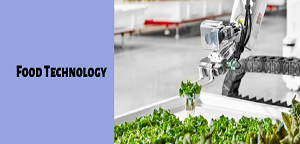
Related Societies:
Europe: European Federation of Food Science and Technology (EFFoST), BLL – German Federation for Food Law and Food Science, Food Drink Europe, European Chemical Industry Council (CEFIC), Association of European Manufacturers and Formulators of Enzyme Products (AMFEP), European Flavour Association (EFFA), International Sweeteners Association (ISA), Natural Food Colors Association (NATCOL)
USA: Food Marketing Institute Association, American School Food Service Association, American Association of Meat Processors, National Grain and Feed Association, International Food Information Council, Institute of Food Technologists, ISEKI-Food Association, Canadian Institute of Food Science and Technology
Asia: Food Industry Asia, All India Food Processors’ Association, Association of Food Scientists and Technologists India (AFSTI), The Japanese Society for Food Science and Technology, International Union of Nutritional Sciences (IUNS), Food and Nutrition Information Center (FNIC), International Dairy Federation Association (IDFA), Food Industry Research and Development Institute (FIRDI)
Track 02: Agri Food Technology
The agri-food sector is the process of food production and distribution, and contains a enormous range of roles from farming to the point of eating. Agricultural technology, or agri-tech, is specifically about emerging new technologies to expand food production. The main objective of agri-tech is reducing the impact of farming on the environment, but it can also increase productivity, profit, or health and safety.
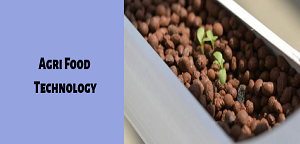
Related Societies:
Europe: European Federation of Food Science and Technology (EFFoST), BLL – German Federation for Food Law and Food Science, Food Drink Europe, European Chemical Industry Council (CEFIC), Association of European Manufacturers and Formulators of Enzyme Products (AMFEP), European Flavour Association (EFFA), International Sweeteners Association (ISA), Natural Food Colors Association (NATCOL)
USA: Food Marketing Institute Association, American School Food Service Association, American Association of Meat Processors, National Grain and Feed Association, International Food Information Council, Institute of Food Technologists, ISEKI-Food Association, Canadian Institute of Food Science and Technology
Asia: Food Industry Asia, All India Food Processors’ Association, Association of Food Scientists and Technologists India (AFSTI), The Japanese Society for Food Science and Technology, International Union of Nutritional Sciences (IUNS), Food and Nutrition Information Center (FNIC), International Dairy Federation Association (IDFA), Food Industry Research and Development Institute (FIRDI)
Track 03: Food Engineering and Processing
Food engineering is an interdisciplinary ground which associates microbiology, applied physical sciences, chemistry and engineering for food and associated productions. It also includes the application of agricultural, mechanical and chemical engineering principles to food materials. Food processing is the conversion of agricultural products into food or of one form of food into other forms. Food processing comprises various forms of processing foods, from grinding grain to make raw flour to home cooking to complex industrial methods used to make convenience foods.
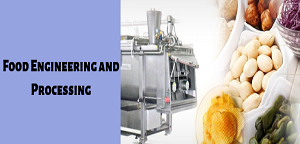
Related Societies:
Europe: European Federation of Food Science and Technology (EFFoST), BLL – German Federation for Food Law and Food Science, Food Drink Europe, European Chemical Industry Council (CEFIC), Association of European Manufacturers and Formulators of Enzyme Products (AMFEP), European Flavour Association (EFFA), International Sweeteners Association (ISA), Natural Food Colors Association (NATCOL)
USA: Food Marketing Institute Association, American School Food Service Association, American Association of Meat Processors, National Grain and Feed Association, International Food Information Council, Institute of Food Technologists, ISEKI-Food Association, Canadian Institute of Food Science and Technology
Asia: Food Industry Asia, All India Food Processors’ Association, Association of Food Scientists and Technologists India (AFSTI), The Japanese Society for Food Science and Technology, International Union of Nutritional Sciences (IUNS), Food and Nutrition Information Center (FNIC), International Dairy Federation Association (IDFA), Food Industry Research and Development Institute (FIRDI)
Track 04: Chemistry of Food and Bio-processed Materials
Chemistry of Food is the study of chemical processes and interactions of all biological and non-biological components of foods. Examples of biological substances are meat, poultry, lettuce, beer, and milk. It is similar to biochemistry in its main components such as carbohydrates, lipids, and protein, but it also includes areas such as water, vitamins, minerals, enzymes, food additives, flavours, and colours. This discipline also includes how products get modified under certain food processing techniques and methods either to enhance or to prevent them from happening.
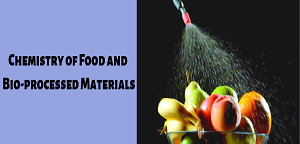
Related Societies:
Europe: European Federation of Food Science and Technology (EFFoST), BLL – German Federation for Food Law and Food Science, Food Drink Europe, European Chemical Industry Council (CEFIC), Association of European Manufacturers and Formulators of Enzyme Products (AMFEP), European Flavour Association (EFFA), International Sweeteners Association (ISA), Natural Food Colors Association (NATCOL)
USA: Food Marketing Institute Association, American School Food Service Association, American Association of Meat Processors, National Grain and Feed Association, International Food Information Council, Institute of Food Technologists, ISEKI-Food Association, Canadian Institute of Food Science and Technology
Asia: Food Industry Asia, All India Food Processors’ Association, Association of Food Scientists and Technologists India (AFSTI), The Japanese Society for Food Science and Technology, International Union of Nutritional Sciences (IUNS), Food and Nutrition Information Center (FNIC), International Dairy Federation Association (IDFA), Food Industry Research and Development Institute (FIRDI)
Track 05: Food and Dairy Technology
Dairy Technology deals with processing of milk and milk product. Dairy technology is a branch of engineering that is concern with the processing of milk and its products. Dairy technology study involves processing, storage, packaging, distribution and transportation of dairy products by entailing the science of bacteriology, nutrition and biochemistry.
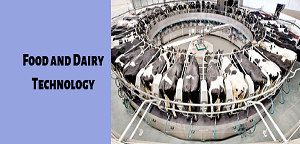
Related Societies:
Europe: European Federation of Food Science and Technology (EFFoST), BLL – German Federation for Food Law and Food Science, Food Drink Europe, European Chemical Industry Council (CEFIC), Association of European Manufacturers and Formulators of Enzyme Products (AMFEP), European Flavour Association (EFFA), International Sweeteners Association (ISA), Natural Food Colors Association (NATCOL)
USA: Food Marketing Institute Association, American School Food Service Association, American Association of Meat Processors, National Grain and Feed Association, International Food Information Council, Institute of Food Technologists, ISEKI-Food Association, Canadian Institute of Food Science and Technology
Asia: Food Industry Asia, All India Food Processors’ Association, Association of Food Scientists and Technologists India (AFSTI), The Japanese Society for Food Science and Technology, International Union of Nutritional Sciences (IUNS), Food and Nutrition Information Center (FNIC), International Dairy Federation Association (IDFA), Food Industry Research and Development Institute (FIRDI)
Track 06: Food Microbiology
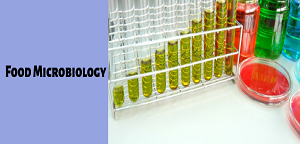
Related Societies:
Europe: European Federation of Food Science and Technology (EFFoST), BLL – German Federation for Food Law and Food Science, Food Drink Europe, European Chemical Industry Council (CEFIC), Association of European Manufacturers and Formulators of Enzyme Products (AMFEP), European Flavour Association (EFFA), International Sweeteners Association (ISA), Natural Food Colors Association (NATCOL)
USA: Food Marketing Institute Association, American School Food Service Association, American Association of Meat Processors, National Grain and Feed Association, International Food Information Council, Institute of Food Technologists, ISEKI-Food Association, Canadian Institute of Food Science and Technology
Asia: Food Industry Asia, All India Food Processors’ Association, Association of Food Scientists and Technologists India (AFSTI), The Japanese Society for Food Science and Technology, International Union of Nutritional Sciences (IUNS), Food and Nutrition Information Center (FNIC), International Dairy Federation Association (IDFA), Food Industry Research and Development Institute (FIRDI)
Track 07: Food Choice and Consumer Behaviour
Individuals make food decisions everyday based on past experience, perceptual differences, habitual intake and responses to environmental cues. Sensory science measures and evaluates the characteristics of foods that make them appealing to consumers. This allows food companies to design foods that appeal to various market sectors, including children. Methods from sensory science can also be used to understand biological variation that predisposes individuals to either consume or avoid foods that have potential to impact health and wellness.

Related Societies:
Europe: European Federation of Food Science and Technology (EFFoST), BLL – German Federation for Food Law and Food Science, Food Drink Europe, European Chemical Industry Council (CEFIC), Association of European Manufacturers and Formulators of Enzyme Products (AMFEP), European Flavour Association (EFFA), International Sweeteners Association (ISA), Natural Food Colors Association (NATCOL)
USA: Food Marketing Institute Association, American School Food Service Association, American Association of Meat Processors, National Grain and Feed Association, International Food Information Council, Institute of Food Technologists, ISEKI-Food Association, Canadian Institute of Food Science and Technology
Asia: Food Industry Asia, All India Food Processors’ Association, Association of Food Scientists and Technologists India (AFSTI), The Japanese Society for Food Science and Technology, International Union of Nutritional Sciences (IUNS), Food and Nutrition Information Center (FNIC), International Dairy Federation Association (IDFA), Food Industry Research and Development Institute (FIRDI)
Track 08: Food Nutrition and Dietetics
Nutrition is the science that deals with the interaction of nutrients and other materials in food in relation to maintenance, growth, reproduction, health and disease of an organism. It consists of food intake, absorption, assimilation, biosynthesis, catabolism, and excretion. The active management of food intake and nutrition are both key to good well-beings. Smart nutrition and food choices can help avoid disease. Eating the right foods can help your body deal with more successfully with an on-going illness. Understanding good nutrition and disbursing attention to what you eat can help you maintain or improve your health.
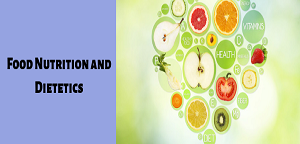
Related Societies:
Europe: European Federation of Food Science and Technology (EFFoST), BLL – German Federation for Food Law and Food Science, Food Drink Europe, European Chemical Industry Council (CEFIC), Association of European Manufacturers and Formulators of Enzyme Products (AMFEP), European Flavour Association (EFFA), International Sweeteners Association (ISA), Natural Food Colors Association (NATCOL)
USA: Food Marketing Institute Association, American School Food Service Association, American Association of Meat Processors, National Grain and Feed Association, International Food Information Council, Institute of Food Technologists, ISEKI-Food Association, Canadian Institute of Food Science and Technology
Asia: Food Industry Asia, All India Food Processors’ Association, Association of Food Scientists and Technologists India (AFSTI), The Japanese Society for Food Science and Technology, International Union of Nutritional Sciences (IUNS), Food and Nutrition Information Center (FNIC), International Dairy Federation Association (IDFA), Food Industry Research and Development Institute (FIRDI)
Track 09: Food Biotechnology
Food Biotechnology is concentrated on evolving developments and solicitations of modern genetics, enzymatic, metabolic and systems-based biochemical processes in food and food-related biological systems. The objective is to aid produce and improve foods, food ingredients, and functional foods at the processing stage and beyond agricultural production, genetically modified plants are used to develop taste, shell life, nutrition and quality of food, genetically modified food is manufactured using biotechnological tools.
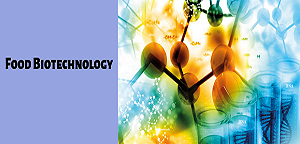
Related Societies:
Europe: European Federation of Food Science and Technology (EFFoST), BLL – German Federation for Food Law and Food Science, Food Drink Europe, European Chemical Industry Council (CEFIC), Association of European Manufacturers and Formulators of Enzyme Products (AMFEP), European Flavour Association (EFFA), International Sweeteners Association (ISA), Natural Food Colors Association (NATCOL)
USA: Food Marketing Institute Association, American School Food Service Association, American Association of Meat Processors, National Grain and Feed Association, International Food Information Council, Institute of Food Technologists, ISEKI-Food Association, Canadian Institute of Food Science and Technology
Asia: Food Industry Asia, All India Food Processors’ Association, Association of Food Scientists and Technologists India (AFSTI), The Japanese Society for Food Science and Technology, International Union of Nutritional Sciences (IUNS), Food and Nutrition Information Center (FNIC), International Dairy Federation Association (IDFA), Food Industry Research and Development Institute (FIRDI)
Track 10: Food Preservation
Food preservation is well-known as the science which deals with the process of prevention of spoilage of food thus permitting it to be stored in a fit condition for future use. Preservation safeguards that the quality, edibility and the nutritive value of the food remains undamaged. Preservation implicates avoiding the growth of bacteria, fungi and other microorganisms as well as retarding oxidation of fats to reduce rancidity. The procedure also guarantees that there is no discolouration or aging and also involves sealing to prevent re-entry of microbes. Basically food preservation ensures that food remains in a state where it is not contaminated by pathogenic organisms or chemicals and does not lose optimum qualities of colour, texture, flavour and nutritive value.
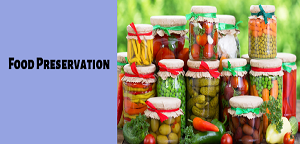
Related Societies:
Europe: European Federation of Food Science and Technology (EFFoST), BLL – German Federation for Food Law and Food Science, Food Drink Europe, European Chemical Industry Council (CEFIC), Association of European Manufacturers and Formulators of Enzyme Products (AMFEP), European Flavour Association (EFFA), International Sweeteners Association (ISA), Natural Food Colors Association (NATCOL)
USA: Food Marketing Institute Association, American School Food Service Association, American Association of Meat Processors, National Grain and Feed Association, International Food Information Council, Institute of Food Technologists, ISEKI-Food Association, Canadian Institute of Food Science and Technology
Asia: Food Industry Asia, All India Food Processors’ Association, Association of Food Scientists and Technologists India (AFSTI), The Japanese Society for Food Science and Technology, International Union of Nutritional Sciences (IUNS), Food and Nutrition Information Center (FNIC), International Dairy Federation Association (IDFA), Food Industry Research and Development Institute (FIRDI)
Track 11: Food Innovation and Management
The notion of food innovation has been incorporated around food companies with growing regularity in recent years. Most of the time, the term” innovation” is associated with new product development, but innovation can be applied equally well across corporate marketing, operations, quality assurance, food safety disciplines. Innovation experts generally split innovation into two high level categories: Disruptive and Incremental Innovation.
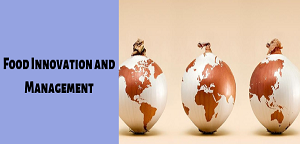
Related Societies:
Europe: European Federation of Food Science and Technology (EFFoST), BLL – German Federation for Food Law and Food Science, Food Drink Europe, European Chemical Industry Council (CEFIC), Association of European Manufacturers and Formulators of Enzyme Products (AMFEP), European Flavour Association (EFFA), International Sweeteners Association (ISA), Natural Food Colors Association (NATCOL)
USA: Food Marketing Institute Association, American School Food Service Association, American Association of Meat Processors, National Grain and Feed Association, International Food Information Council, Institute of Food Technologists, ISEKI-Food Association, Canadian Institute of Food Science and Technology
Asia: Food Industry Asia, All India Food Processors’ Association, Association of Food Scientists and Technologists India (AFSTI), The Japanese Society for Food Science and Technology, International Union of Nutritional Sciences (IUNS), Food and Nutrition Information Center (FNIC), International Dairy Federation Association (IDFA), Food Industry Research and Development Institute (FIRDI)
Track 12: Food Safety and Hygiene
Food safety refers to controlling the presence of those hazards whether chronic or acute, that may make food harmful to the health of the consumer. Food safety is about producing, handling, storing and preparing food in such a way as to preclude infection and contamination in the food production chain, and to help ensure that food quality and goodness are sustained to stimulate good health. Food hygiene is the conditions and measures necessary to certify the safety of food from production to consumption. Lack of adequate food hygiene can lead to foodborne diseases and can cause the death of the consumer. The objective of food hygiene is to make and deliver safe food and consequently contribute to a healthy and productive society.

Related Societies:
Europe: European Federation of Food Science and Technology (EFFoST), BLL – German Federation for Food Law and Food Science, Food Drink Europe, European Chemical Industry Council (CEFIC), Association of European Manufacturers and Formulators of Enzyme Products (AMFEP), European Flavour Association (EFFA), International Sweeteners Association (ISA), Natural Food Colors Association (NATCOL)
USA: Food Marketing Institute Association, American School Food Service Association, American Association of Meat Processors, National Grain and Feed Association, International Food Information Council, Institute of Food Technologists, ISEKI-Food Association, Canadian Institute of Food Science and Technology
Asia: Food Industry Asia, All India Food Processors’ Association, Association of Food Scientists and Technologists India (AFSTI), The Japanese Society for Food Science and Technology, International Union of Nutritional Sciences (IUNS), Food and Nutrition Information Center (FNIC), International Dairy Federation Association (IDFA), Food Industry Research and Development Institute (FIRDI)
Track 13: Food Packaging
The goal of food packaging is to safeguard the packed products and preserve their freshness. Food packaging is a synchronized system of formulating food for transport, distribution, storage, retailing, and finally to fulfil the desires of consumer at an appropriate cost. As per World Packaging Organization more than 25% of food gets ruined due to poor and corrupt packaging. Thus the ideal packaging can diminish the large amount of food waste. Food packaging maintains food nutrition, swift and constant distribution of food among the value chain and decreases post-harvest losses.

Related Societies:
Europe: European Federation of Food Science and Technology (EFFoST), BLL – German Federation for Food Law and Food Science, Food Drink Europe, European Chemical Industry Council (CEFIC), Association of European Manufacturers and Formulators of Enzyme Products (AMFEP), European Flavour Association (EFFA), International Sweeteners Association (ISA), Natural Food Colors Association (NATCOL)
USA: Food Marketing Institute Association, American School Food Service Association, American Association of Meat Processors, National Grain and Feed Association, International Food Information Council, Institute of Food Technologists, ISEKI-Food Association, Canadian Institute of Food Science and Technology
Asia: Food Industry Asia, All India Food Processors’ Association, Association of Food Scientists and Technologists India (AFSTI), The Japanese Society for Food Science and Technology, International Union of Nutritional Sciences (IUNS), Food and Nutrition Information Center (FNIC), International Dairy Federation Association (IDFA), Food Industry Research and Development Institute (FIRDI)
Track 14: Food Toxicology
Food toxicology deals with how natural or synthetic poisons and toxicants in various food products cause harmful, detrimental, or adverse side effects in living organisms. Food Toxicology shields with various aspects of food safety and toxicology, including the study of the nature, properties, effects, and detection of toxic substances in food and their disease manifestations in humans. It will also include other phases of consumer product safety. Radioactive components, heavy metals, or the packaging materials used in food processing are examples of such substances. A food toxicologist studies toxicants in food, the health effects of high nutrient intakes, and the connection between toxicants and nutrients.
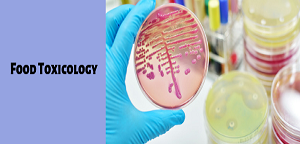
Related Societies:
Europe: European Federation of Food Science and Technology (EFFoST), BLL – German Federation for Food Law and Food Science, Food Drink Europe, European Chemical Industry Council (CEFIC), Association of European Manufacturers and Formulators of Enzyme Products (AMFEP), European Flavour Association (EFFA), International Sweeteners Association (ISA), Natural Food Colors Association (NATCOL)
USA: Food Marketing Institute Association, American School Food Service Association, American Association of Meat Processors, National Grain and Feed Association, International Food Information Council, Institute of Food Technologists, ISEKI-Food Association, Canadian Institute of Food Science and Technology
Asia: Food Industry Asia, All India Food Processors’ Association, Association of Food Scientists and Technologists India (AFSTI), The Japanese Society for Food Science and Technology, International Union of Nutritional Sciences (IUNS), Food and Nutrition Information Center (FNIC), International Dairy Federation Association (IDFA), Food Industry Research and Development Institute (FIRDI)
Track 15: Food-borne Diseases
Food borne illness or foodborne disease or food poisoning is any illness resulting from the food spoilage of contaminated food, pathogenic bacteria, viruses, or parasites that contaminate food. Foodborne illnesses are infections or irascibilities of the gastrointestinal (GI) tract triggered by food or beverages that contain destructive bacteria, parasites, viruses, or chemicals. The GI tract is a sequence of hollow organs joined in a long, twisting tube from the mouth to the anus. Common symptoms of foodborne illnesses are vomiting, diarrhoea, abdominal pain, fever, and chills.
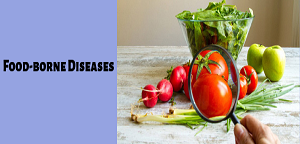
Related Societies:
Europe: European Federation of Food Science and Technology (EFFoST), BLL – German Federation for Food Law and Food Science, Food Drink Europe, European Chemical Industry Council (CEFIC), Association of European Manufacturers and Formulators of Enzyme Products (AMFEP), European Flavour Association (EFFA), International Sweeteners Association (ISA), Natural Food Colors Association (NATCOL)
USA: Food Marketing Institute Association, American School Food Service Association, American Association of Meat Processors, National Grain and Feed Association, International Food Information Council, Institute of Food Technologists, ISEKI-Food Association, Canadian Institute of Food Science and Technology
Asia: Food Industry Asia, All India Food Processors’ Association, Association of Food Scientists and Technologists India (AFSTI), The Japanese Society for Food Science and Technology, International Union of Nutritional Sciences (IUNS), Food and Nutrition Information Center (FNIC), International Dairy Federation Association (IDFA), Food Industry Research and Development Institute (FIRDI)
Track 16: Advancement in Food Technology
As the financial prudence of many countries are increasing, the customers have started using processed food more than the staples. As a matter of fact world-wide food processing technology business has extended to multi trillion dollars. It was reported that around, 16 million people work in the food industry. Recent improvements in food processing and technology are not only important to meet the increasing productivity demands but to adopt erudite automation, control and monitoring methods and techniques.

Related Societies:
Europe: European Federation of Food Science and Technology (EFFoST), BLL – German Federation for Food Law and Food Science, Food Drink Europe, European Chemical Industry Council (CEFIC), Association of European Manufacturers and Formulators of Enzyme Products (AMFEP), European Flavour Association (EFFA), International Sweeteners Association (ISA), Natural Food Colors Association (NATCOL)
USA: Food Marketing Institute Association, American School Food Service Association, American Association of Meat Processors, National Grain and Feed Association, International Food Information Council, Institute of Food Technologists, ISEKI-Food Association, Canadian Institute of Food Science and Technology
Asia: Food Industry Asia, All India Food Processors’ Association, Association of Food Scientists and Technologists India (AFSTI), The Japanese Society for Food Science and Technology, International Union of Nutritional Sciences (IUNS), Food and Nutrition Information Center (FNIC), International Dairy Federation Association (IDFA), Food Industry Research and Development Institute (FIRDI)
Track 17: Management of Food Waste
Food waste or food loss is food that is thrown away or lost uneaten. The reasons of food waste or loss are several and occur at the stages of producing, processing, retailing and consuming. In the most recent years, food waste has become a multifaceted phenomenon attracting the attention of scientists, consumers and activists alike. It’s been termed as a global paradox regarding the method in which importance is put on agriculture to advance food security and then a third of all the food produced ends up as waste.
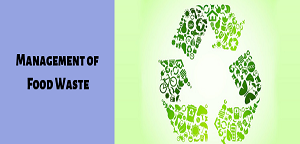
Related Societies:
Europe: European Federation of Food Science and Technology (EFFoST), BLL – German Federation for Food Law and Food Science, Food Drink Europe, European Chemical Industry Council (CEFIC), Association of European Manufacturers and Formulators of Enzyme Products (AMFEP), European Flavour Association (EFFA), International Sweeteners Association (ISA), Natural Food Colors Association (NATCOL)
USA: Food Marketing Institute Association, American School Food Service Association, American Association of Meat Processors, National Grain and Feed Association, International Food Information Council, Institute of Food Technologists, ISEKI-Food Association, Canadian Institute of Food Science and Technology
Asia: Food Industry Asia, All India Food Processors’ Association, Association of Food Scientists and Technologists India (AFSTI), The Japanese Society for Food Science and Technology, International Union of Nutritional Sciences (IUNS), Food and Nutrition Information Center (FNIC), International Dairy Federation Association (IDFA), Food Industry Research and Development Institute (FIRDI)
Track 18: Food and Agricultural Immunology
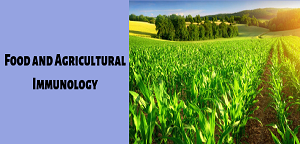
Related Societies:
Europe: European Federation of Food Science and Technology (EFFoST), BLL – German Federation for Food Law and Food Science, Food Drink Europe, European Chemical Industry Council (CEFIC), Association of European Manufacturers and Formulators of Enzyme Products (AMFEP), European Flavour Association (EFFA), International Sweeteners Association (ISA), Natural Food Colors Association (NATCOL)
USA: Food Marketing Institute Association, American School Food Service Association, American Association of Meat Processors, National Grain and Feed Association, International Food Information Council, Institute of Food Technologists, ISEKI-Food Association, Canadian Institute of Food Science and Technology
Asia: Food Industry Asia, All India Food Processors’ Association, Association of Food Scientists and Technologists India (AFSTI), The Japanese Society for Food Science and Technology, International Union of Nutritional Sciences (IUNS), Food and Nutrition Information Center (FNIC), International Dairy Federation Association (IDFA), Food Industry Research and Development Institute (FIRDI)
Track 19: Nutraceuticals & Nutrition Supplements
A nutraceutical is a food or food component that petition to have health benefits, including treatment and prevention of disease. Nutraceuticals are those products apart from nutrition they are also used as medicine. A nutraceutical product may be defined as a constituent, which has physiological benefit and also provides protection against chronic disease. Nutraceuticals may be used to progress health, delay the aging process, preclude chronic diseases, increase life expectancy, or support the structure or function of the body. Nutritional supplements are any dietary supplement that is projected to provide nutrients that may otherwise not be consumed in adequate quantities; for example, vitamins, minerals, proteins, amino acids or other nutritional substances. Products are usually ingested in the form of capsule, tablet or liquid.

Related Societies:
Europe: European Federation of Food Science and Technology (EFFoST), BLL – German Federation for Food Law and Food Science, Food Drink Europe, European Chemical Industry Council (CEFIC), Association of European Manufacturers and Formulators of Enzyme Products (AMFEP), European Flavour Association (EFFA), International Sweeteners Association (ISA), Natural Food Colors Association (NATCOL)
USA: Food Marketing Institute Association, American School Food Service Association, American Association of Meat Processors, National Grain and Feed Association, International Food Information Council, Institute of Food Technologists, ISEKI-Food Association, Canadian Institute of Food Science and Technology
Asia: Food Industry Asia, All India Food Processors’ Association, Association of Food Scientists and Technologists India (AFSTI), The Japanese Society for Food Science and Technology, International Union of Nutritional Sciences (IUNS), Food and Nutrition Information Center (FNIC), International Dairy Federation Association (IDFA), Food Industry Research and Development Institute (FIRDI)
Track 20: Seafood Processing
Seafood is fish and material produced from fish, comprising finfish, crustaceans, cephalopods, echinoderms, molluscs and gastropods. The term seafood processing refers to the procedures associated with fish and fish products between the time fish are caught or harvested, and the time the final food is delivered to the customer. Although the term refers precisely to fish, but actually it is extended to cover any aquatic organisms harvested for marketable purposes, whether caught in wild fisheries or harvested from aquaculture or fish farming.
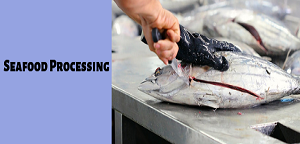
Related Societies:
Europe: European Federation of Food Science and Technology (EFFoST), BLL – German Federation for Food Law and Food Science, Food Drink Europe, European Chemical Industry Council (CEFIC), Association of European Manufacturers and Formulators of Enzyme Products (AMFEP), European Flavour Association (EFFA), International Sweeteners Association (ISA), Natural Food Colors Association (NATCOL)
USA: Food Marketing Institute Association, American School Food Service Association, American Association of Meat Processors, National Grain and Feed Association, International Food Information Council, Institute of Food Technologists, ISEKI-Food Association, Canadian Institute of Food Science and Technology
Asia: Food Industry Asia, All India Food Processors’ Association, Association of Food Scientists and Technologists India (AFSTI), The Japanese Society for Food Science and Technology, International Union of Nutritional Sciences (IUNS), Food and Nutrition Information Center (FNIC), International Dairy Federation Association (IDFA), Food Industry Research and Development Institute (FIRDI)
Track 21: Sensory Evaluation
Sensory analysis or Sensory evaluation is a scientific discipline that applies principles of experimental design and statistical analysis to the use of human senses like sight, smell, taste, touch and hearing for the purposes of evaluating consumer products. The evaluation involves boards of human inspectors, on whom the products are tested, and recording the responses made by them. By applying statistical methods to the results it is possible to make suggestions and insights about the products under test.

Related Societies:
Europe: European Federation of Food Science and Technology (EFFoST), BLL – German Federation for Food Law and Food Science, Food Drink Europe, European Chemical Industry Council (CEFIC), Association of European Manufacturers and Formulators of Enzyme Products (AMFEP), European Flavour Association (EFFA), International Sweeteners Association (ISA), Natural Food Colors Association (NATCOL)
USA: Food Marketing Institute Association, American School Food Service Association, American Association of Meat Processors, National Grain and Feed Association, International Food Information Council, Institute of Food Technologists, ISEKI-Food Association, Canadian Institute of Food Science and Technology
Asia: Food Industry Asia, All India Food Processors’ Association, Association of Food Scientists and Technologists India (AFSTI), The Japanese Society for Food Science and Technology, International Union of Nutritional Sciences (IUNS), Food and Nutrition Information Center (FNIC), International Dairy Federation Association (IDFA), Food Industry Research and Development Institute (FIRDI)
Track 22: Enology and Brewing Science
Enology is the study of wine and winemaking .The new facility allows us to expand our experimental winemaking program to test new grape varieties and winemaking practices. It permits us to scale up our experiments to industrial production volumes. An enologist is one that practices the field of enology, and often understands the scientific principles associated with winemaking, including desirable characteristics associated with the grape itself.
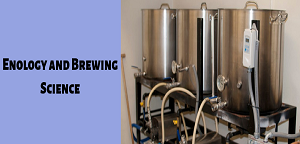
Related Societies:
Europe: European Federation of Food Science and Technology (EFFoST), BLL – German Federation for Food Law and Food Science, Food Drink Europe, European Chemical Industry Council (CEFIC), Association of European Manufacturers and Formulators of Enzyme Products (AMFEP), European Flavour Association (EFFA), International Sweeteners Association (ISA), Natural Food Colors Association (NATCOL)
USA: Food Marketing Institute Association, American School Food Service Association, American Association of Meat Processors, National Grain and Feed Association, International Food Information Council, Institute of Food Technologists, ISEKI-Food Association, Canadian Institute of Food Science and Technology
Asia: Food Industry Asia, All India Food Processors’ Association, Association of Food Scientists and Technologists India (AFSTI), The Japanese Society for Food Science and Technology, International Union of Nutritional Sciences (IUNS), Food and Nutrition Information Center (FNIC), International Dairy Federation Association (IDFA), Food Industry Research and Development Institute (FIRDI)
Track 23: Pharmaceutical Technology
Pharmaceutical Technology is the combining of scientific aspects that are precarious in the development and production of new drugs, handling of medicines and medical devices. Pharmaceutical technology is solicitation of scientific knowledge or technology to pharmacy, pharmacology, and the pharmaceutical industry. It includes methods, techniques, and instrumentation in the manufacture, preparation, compounding, dispensing, packaging, and storing of drugs and other preparations used in diagnostic and formative procedures and in the treatment of patients.

Related Societies:
Europe: European Federation of Food Science and Technology (EFFoST), BLL – German Federation for Food Law and Food Science, Food Drink Europe, European Chemical Industry Council (CEFIC), Association of European Manufacturers and Formulators of Enzyme Products (AMFEP), European Flavour Association (EFFA), International Sweeteners Association (ISA), Natural Food Colors Association (NATCOL)
USA: Food Marketing Institute Association, American School Food Service Association, American Association of Meat Processors, National Grain and Feed Association, International Food Information Council, Institute of Food Technologists, ISEKI-Food Association, Canadian Institute of Food Science and Technology
Asia: Food Industry Asia, All India Food Processors’ Association, Association of Food Scientists and Technologists India (AFSTI), The Japanese Society for Food Science and Technology, International Union of Nutritional Sciences (IUNS), Food and Nutrition Information Center (FNIC), International Dairy Federation Association (IDFA), Food Industry Research and Development Institute (FIRDI)
Track 24: Food and Flavour Chemistry
Flavour chemistry is a scientific discipline that is used to determine the individual compounds that are responsible for the characteristic flavour found in foods and beverages. Flavour chemistry can be used to identify both positive and negative compounds associated with specific sensory attributes. Using multivariate statistical techniques, flavour chemistry can also be linked with descriptive sensory evaluation to identify the compounds directly responsible for sensory perception. The more information available on a product, the better likelihood that key relationships that directly and indirectly impact on the formation of key flavour compounds can be explained.
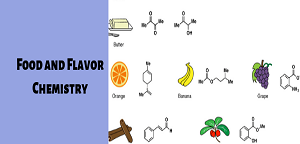
Related Societies:
Europe: European Federation of Food Science and Technology (EFFoST), BLL – German Federation for Food Law and Food Science, Food Drink Europe, European Chemical Industry Council (CEFIC), Association of European Manufacturers and Formulators of Enzyme Products (AMFEP), European Flavour Association (EFFA), International Sweeteners Association (ISA), Natural Food Colors Association (NATCOL)
USA: Food Marketing Institute Association, American School Food Service Association, American Association of Meat Processors, National Grain and Feed Association, International Food Information Council, Institute of Food Technologists, ISEKI-Food Association, Canadian Institute of Food Science and Technology
Asia: Food Industry Asia, All India Food Processors’ Association, Association of Food Scientists and Technologists India (AFSTI), The Japanese Society for Food Science and Technology, International Union of Nutritional Sciences (IUNS), Food and Nutrition Information Center (FNIC), International Dairy Federation Association (IDFA), Food Industry Research and Development Institute (FIRDI)
Track 25: Meat Science and Processing Technology
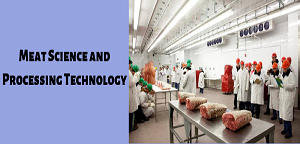
Related Societies:
Europe: European Federation of Food Science and Technology (EFFoST), BLL – German Federation for Food Law and Food Science, Food Drink Europe, European Chemical Industry Council (CEFIC), Association of European Manufacturers and Formulators of Enzyme Products (AMFEP), European Flavour Association (EFFA), International Sweeteners Association (ISA), Natural Food Colors Association (NATCOL)
USA: Food Marketing Institute Association, American School Food Service Association, American Association of Meat Processors, National Grain and Feed Association, International Food Information Council, Institute of Food Technologists, ISEKI-Food Association, Canadian Institute of Food Science and Technology
Asia: Food Industry Asia, All India Food Processors’ Association, Association of Food Scientists and Technologists India (AFSTI), The Japanese Society for Food Science and Technology, International Union of Nutritional Sciences (IUNS), Food and Nutrition Information Center (FNIC), International Dairy Federation Association (IDFA), Food Industry Research and Development Institute (FIRDI)
Track 26: Bioinformatics in FoodTech
Food plays a significant role in regulating the numerous processes within the body. With the constant advancement, bioinformatics curates and infers biological data by computational means and therefore it has seen extensive integration across every discipline of life sciences including food sciences. Bioinformatics can be used for competently access to all genomics, proteomics and metabolomics data discovered so far and to make accessible this data to every individual group industry or company so as to rise quality, taste and nutritional value of food that is to be manufactured.
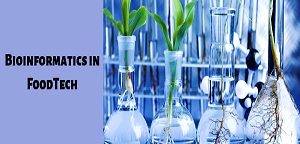
Related Societies:
Europe: European Federation of Food Science and Technology (EFFoST), BLL – German Federation for Food Law and Food Science, Food Drink Europe, European Chemical Industry Council (CEFIC), Association of European Manufacturers and Formulators of Enzyme Products (AMFEP), European Flavour Association (EFFA), International Sweeteners Association (ISA), Natural Food Colors Association (NATCOL)
USA: Food Marketing Institute Association, American School Food Service Association, American Association of Meat Processors, National Grain and Feed Association, International Food Information Council, Institute of Food Technologists, ISEKI-Food Association, Canadian Institute of Food Science and Technology
Asia: Food Industry Asia, All India Food Processors’ Association, Association of Food Scientists and Technologists India (AFSTI), The Japanese Society for Food Science and Technology, International Union of Nutritional Sciences (IUNS), Food and Nutrition Information Center (FNIC), International Dairy Federation Association (IDFA), Food Industry Research and Development Institute (FIRDI)
Track 27: Global Food Security
Food security ensues when all people are able to access sufficient safe and nourishing food to meet their requirements for a healthy life, in ways the planet can withstand into the future. However, food security faces a number of tasks across both manufacture and ingestion which research will be essential to solve.
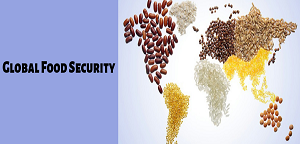
Related Societies:
Europe: European Federation of Food Science and Technology (EFFoST), BLL – German Federation for Food Law and Food Science, Food Drink Europe, European Chemical Industry Council (CEFIC), Association of European Manufacturers and Formulators of Enzyme Products (AMFEP), European Flavour Association (EFFA), International Sweeteners Association (ISA), Natural Food Colors Association (NATCOL)
USA: Food Marketing Institute Association, American School Food Service Association, American Association of Meat Processors, National Grain and Feed Association, International Food Information Council, Institute of Food Technologists, ISEKI-Food Association, Canadian Institute of Food Science and Technology
Asia: Food Industry Asia, All India Food Processors’ Association, Association of Food Scientists and Technologists India (AFSTI), The Japanese Society for Food Science and Technology, International Union of Nutritional Sciences (IUNS), Food and Nutrition Information Center (FNIC), International Dairy Federation Association (IDFA), Food Industry Research and Development Institute (FIRDI)
Track 28: Food Industry Background
The food industry is an intricate, worldwide collective of diverse trades that supplies most of the food consumed by the world's population. Only existence farmers, those who survive on what they grow, and hunter-gatherers can be considered outside the scope of the modern food industry. The food Industry comprises: Agriculture and agronomy, Food processing, Food Technology, etc.
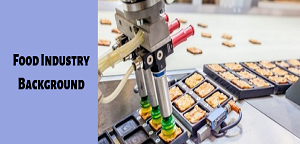
Related Societies:
Europe: European Federation of Food Science and Technology (EFFoST), BLL – German Federation for Food Law and Food Science, Food Drink Europe, European Chemical Industry Council (CEFIC), Association of European Manufacturers and Formulators of Enzyme Products (AMFEP), European Flavour Association (EFFA), International Sweeteners Association (ISA), Natural Food Colors Association (NATCOL)
USA: Food Marketing Institute Association, American School Food Service Association, American Association of Meat Processors, National Grain and Feed Association, International Food Information Council, Institute of Food Technologists, ISEKI-Food Association, Canadian Institute of Food Science and Technology
Asia: Food Industry Asia, All India Food Processors’ Association, Association of Food Scientists and Technologists India (AFSTI), The Japanese Society for Food Science and Technology, International Union of Nutritional Sciences (IUNS), Food and Nutrition Information Center (FNIC), International Dairy Federation Association (IDFA), Food Industry Research and Development Institute (FIRDI)
Track 29: Food Authentication
With the increasing attentiveness of food safety and quality, consumers constantly claim the reassurance of origin and content of their foods. Furthermore, producers must be able to authorize the authenticity of components of their products in order to fulfil with government legislation. Food authentication is a quickly growing arena due to increasing public awareness concerning food quality and safety.
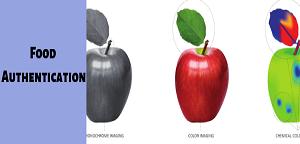
Related Societies:
Europe: European Federation of Food Science and Technology (EFFoST), BLL – German Federation for Food Law and Food Science, Food Drink Europe, European Chemical Industry Council (CEFIC), Association of European Manufacturers and Formulators of Enzyme Products (AMFEP), European Flavour Association (EFFA), International Sweeteners Association (ISA), Natural Food Colors Association (NATCOL)
USA: Food Marketing Institute Association, American School Food Service Association, American Association of Meat Processors, National Grain and Feed Association, International Food Information Council, Institute of Food Technologists, ISEKI-Food Association, Canadian Institute of Food Science and Technology
Asia: Food Industry Asia, All India Food Processors’ Association, Association of Food Scientists and Technologists India (AFSTI), The Japanese Society for Food Science and Technology, International Union of Nutritional Sciences (IUNS), Food and Nutrition Information Center (FNIC), International Dairy Federation Association (IDFA), Food Industry Research and Development Institute (FIRDI)
Track 30: Food and Quality Control
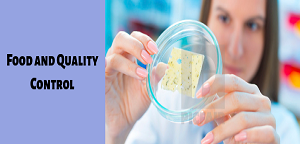
Related Societies:
Europe: European Federation of Food Science and Technology (EFFoST), BLL – German Federation for Food Law and Food Science, Food Drink Europe, European Chemical Industry Council (CEFIC), Association of European Manufacturers and Formulators of Enzyme Products (AMFEP), European Flavour Association (EFFA), International Sweeteners Association (ISA), Natural Food Colors Association (NATCOL)
USA: Food Marketing Institute Association, American School Food Service Association, American Association of Meat Processors, National Grain and Feed Association, International Food Information Council, Institute of Food Technologists, ISEKI-Food Association, Canadian Institute of Food Science and Technology
Asia: Food Industry Asia, All India Food Processors’ Association, Association of Food Scientists and Technologists India (AFSTI), The Japanese Society for Food Science and Technology, International Union of Nutritional Sciences (IUNS), Food and Nutrition Information Center (FNIC), International Dairy Federation Association (IDFA), Food Industry Research and Development Institute (FIRDI)
Track 31: Food Consumption and Health Mapping Devices
With advancements in technology, several devices have come up that monitor our health. These devices are capable of tracking the daily intake of nutrients and provide the user a detailed report on its usage. Health mapping devices effectively help individuals to track their own consumption and health.

Related Societies:
Europe: European Federation of Food Science and Technology (EFFoST), BLL – German Federation for Food Law and Food Science, Food Drink Europe, European Chemical Industry Council (CEFIC), Association of European Manufacturers and Formulators of Enzyme Products (AMFEP), European Flavour Association (EFFA), International Sweeteners Association (ISA), Natural Food Colors Association (NATCOL)
USA: Food Marketing Institute Association, American School Food Service Association, American Association of Meat Processors, National Grain and Feed Association, International Food Information Council, Institute of Food Technologists, ISEKI-Food Association, Canadian Institute of Food Science and Technology
Asia: Food Industry Asia, All India Food Processors’ Association, Association of Food Scientists and Technologists India (AFSTI), The Japanese Society for Food Science and Technology, International Union of Nutritional Sciences (IUNS), Food and Nutrition Information Center (FNIC), International Dairy Federation Association (IDFA), Food Industry Research and Development Institute (FIRDI)
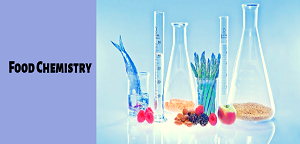
Related Societies:
Europe: European Federation of Food Science and Technology (EFFoST), BLL – German Federation for Food Law and Food Science, Food Drink Europe, European Chemical Industry Council (CEFIC), Association of European Manufacturers and Formulators of Enzyme Products (AMFEP), European Flavour Association (EFFA), International Sweeteners Association (ISA), Natural Food Colors Association (NATCOL)
USA: Food Marketing Institute Association, American School Food Service Association, American Association of Meat Processors, National Grain and Feed Association, International Food Information Council, Institute of Food Technologists, ISEKI-Food Association, Canadian Institute of Food Science and Technology
Asia: Food Industry Asia, All India Food Processors’ Association, Association of Food Scientists and Technologists India (AFSTI), The Japanese Society for Food Science and Technology, International Union of Nutritional Sciences (IUNS), Food and Nutrition Information Center (FNIC), International Dairy Federation Association (IDFA), Food Industry Research and Development Institute (FIRDI)
Track 33: Food Science
To simply put, food science is the study of food. It involves the study of the Physical, biological and chemical nature of food. Food science also comprises evaluation of food processing, packaging and safety. Food Composition Databases exist, which lists details information sets on the nutritional value and components of a particular food, which is its carbohydrate, protein, fat, vitamins, minerals, and fiber content.
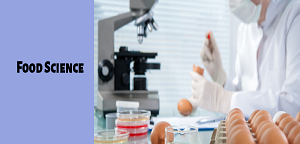
Related Societies:
Europe: European Federation of Food Science and Technology (EFFoST), BLL – German Federation for Food Law and Food Science, Food Drink Europe, European Chemical Industry Council (CEFIC), Association of European Manufacturers and Formulators of Enzyme Products (AMFEP), European Flavour Association (EFFA), International Sweeteners Association (ISA), Natural Food Colors Association (NATCOL)
USA: Food Marketing Institute Association, American School Food Service Association, American Association of Meat Processors, National Grain and Feed Association, International Food Information Council, Institute of Food Technologists, ISEKI-Food Association, Canadian Institute of Food Science and Technology
Asia: Food Industry Asia, All India Food Processors’ Association, Association of Food Scientists and Technologists India (AFSTI), The Japanese Society for Food Science and Technology, International Union of Nutritional Sciences (IUNS), Food and Nutrition Information Center (FNIC), International Dairy Federation Association (IDFA), Food Industry Research and Development Institute (FIRDI)
Track 34: Sports Nutrition

Related Societies:
Europe: European Federation of Food Science and Technology (EFFoST), BLL – German Federation for Food Law and Food Science, Food Drink Europe, European Chemical Industry Council (CEFIC), Association of European Manufacturers and Formulators of Enzyme Products (AMFEP), European Flavour Association (EFFA), International Sweeteners Association (ISA), Natural Food Colors Association (NATCOL)
USA: Food Marketing Institute Association, American School Food Service Association, American Association of Meat Processors, National Grain and Feed Association, International Food Information Council, Institute of Food Technologists, ISEKI-Food Association, Canadian Institute of Food Science and Technology
Asia: Food Industry Asia, All India Food Processors’ Association, Association of Food Scientists and Technologists India (AFSTI), The Japanese Society for Food Science and Technology, International Union of Nutritional Sciences (IUNS), Food and Nutrition Information Center (FNIC), International Dairy Federation Association (IDFA), Food Industry Research and Development Institute (FIRDI)
Track 35: Food Allergies
An unusual reaction by the immune system to certain food or components of food is called a food allergy. Common symptoms include itching, reddening, rashes, vomiting or even diarrhoea. Although any food can set off an allergic reaction, milk, eggs and nuts are the most common sources. People allergic to certain food must ensure that they compensate for the nutrients by consuming alternatives in their diet.

Related Societies:
Europe: European Federation of Food Science and Technology (EFFoST), BLL – German Federation for Food Law and Food Science, Food Drink Europe, European Chemical Industry Council (CEFIC), Association of European Manufacturers and Formulators of Enzyme Products (AMFEP), European Flavour Association (EFFA), International Sweeteners Association (ISA), Natural Food Colors Association (NATCOL)
USA: Food Marketing Institute Association, American School Food Service Association, American Association of Meat Processors, National Grain and Feed Association, International Food Information Council, Institute of Food Technologists, ISEKI-Food Association, Canadian Institute of Food Science and Technology
Asia: Food Industry Asia, All India Food Processors’ Association, Association of Food Scientists and Technologists India (AFSTI), The Japanese Society for Food Science and Technology, International Union of Nutritional Sciences (IUNS), Food and Nutrition Information Center (FNIC), International Dairy Federation Association (IDFA), Food Industry Research and Development Institute (FIRDI)
Conference Highlights
To share your views and research, please click here to register for the Conference.
To Collaborate Scientific Professionals around the World
| Conference Date | October 05-06, 2022 | ||
| Sponsors & Exhibitors |
|
||
| Speaker Opportunity Closed | Day 1 | ||
| Poster Opportunity Closed | Click Here to View | ||
Useful Links
Special Issues
All accepted abstracts will be published in respective Our International Journals.
Abstracts will be provided with Digital Object Identifier by





